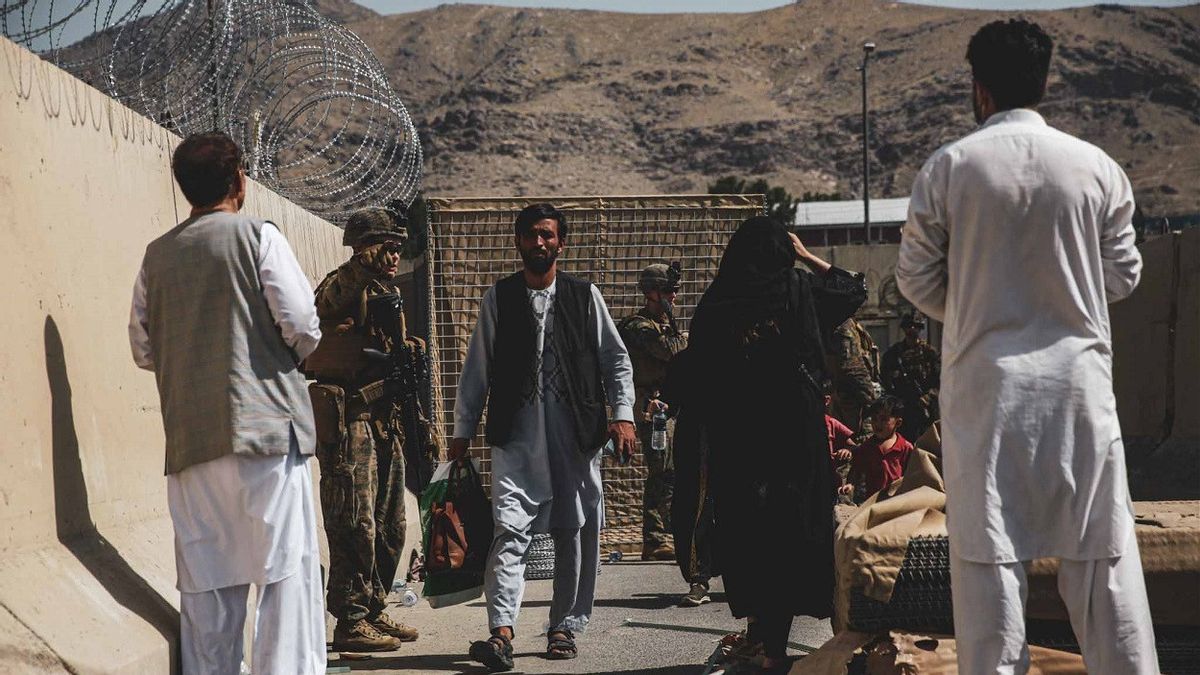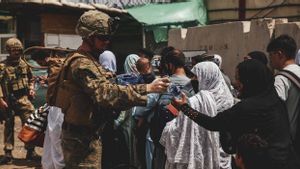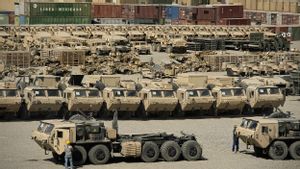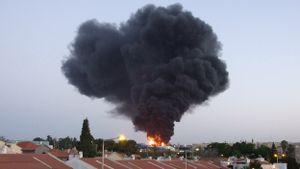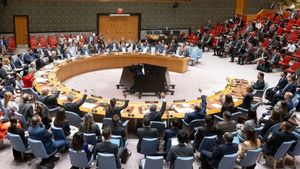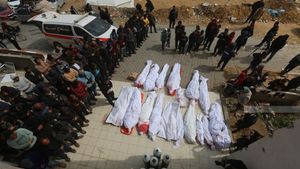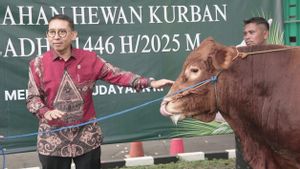JAKARTA - Afghans who managed to travel for weeks through Iran on foot to the Turkish border face three-meter-high walls, trenches, or barbed wire, as Turkish authorities step up efforts to block the entry of refugees into the country.
The stepped-up border measures in Turkey, which already hosts nearly 4 million Syrian refugees and is a checkpoint for many migrants trying to reach Europe, began when the Taliban began advancing in Afghanistan and took over Kabul last week.
Authorities plan to add another 64 km of the border wall by the end since construction began in 2017. Meanwhile, trenches, wires, and round-the-clock security patrols will cover the remaining 560 km of the border.
"We want to show the whole world that our borders are impassable. Our biggest hope is that there will be no influx of migrants from Afghanistan," Mehmet Emin Bilmez, governor of the eastern border province of Van, told Reuters over the weekend.

Turkey is not the only country to put up barriers at the border. Greece has just completed the construction of a 40km-long guardrail, as well as a surveillance system to prevent migrants who still manage to enter Turkey and try to reach the European Union.
Authorities say there are 182,000 registered Afghan migrants in Turkey and about 120,000 unregistered. President Tayyip Erdogan urged European countries to take responsibility for the influx of a new wave, warning that Turkey had no intention of becoming a "European migrant storage unit".
Meanwhile, the number of Afghan irregular migrants detained in Turkey so far this year is less than a fifth of the number detained in 2019. Officials say they have not seen any sign of a major spike since last week's Taliban victory, although the long distances mean refugees could take some time. weeks to arrive.
Turkey's mountainous side of the border with Iran is lined by bases and watchtowers. Patrol cars monitor around the clock for movements on the Iranian side, from where migrants, smugglers with Kurdish militants often try to cross into Turkey.
Migrants seen crossing the border were returned to the Iranian side, though most returned and tried again, according to security forces.
"No matter how many high-level actions you take, there may be people who avoid it from time to time," Bilmez said.

The roads leading from the border are lined with checkpoints. Migrants who make it through are hidden by smugglers in homes, often dirty and dilapidated buildings underground or in dry riverbeds - waiting to be transferred to western Turkey.
On Saturday, police arrested 25 migrants, mostly Afghans, behind a dilapidated building in the Van's Hacibekir neighborhood.
"We thought we would have facilities here, we would get to support our parents. There, there was the Taliban to kill us," said Zaynullah, 20, one of those detained. He said he arrived in Turkey two days earlier after walking for 80 days.
Those arrested are taken for health and security checks at the processing center. There Seyyed Fahim Mousavi, 26, said he fled his home in Kabul a month ago, before the Taliban arrived, fearing they would kill him because he worked as a driver for the United States and Turkey.
His 22-year-old wife, Morsal, said they traveled through Iran mostly on foot to escape the Taliban.
"They hurt women. After raping, they will kill the woman. They behead the men. "We don't want to go back. Let us stay here," he said, holding his two children, aged two and five.
SEE ALSO:
Once processed, the migrants are taken to a repatriation center, where they can spend up to 12 months before being sent back to their home country. The repatriation has stopped for Afghans now, leaving some 7,500 Afghans in limbo at various repatriation centres.
Separately, Ramazan Secilmis, deputy head of the migration directorate, said his organization was working to identify those who needed protection from the Taliban to transfer them to third countries.
"Those who need protection need to be separated from those who come to our country for economic reasons. We cannot deport anyone automatically just because they have Afghan citizenship," he said.
The English, Chinese, Japanese, Arabic, and French versions are automatically generated by the AI. So there may still be inaccuracies in translating, please always see Indonesian as our main language. (system supported by DigitalSiber.id)
